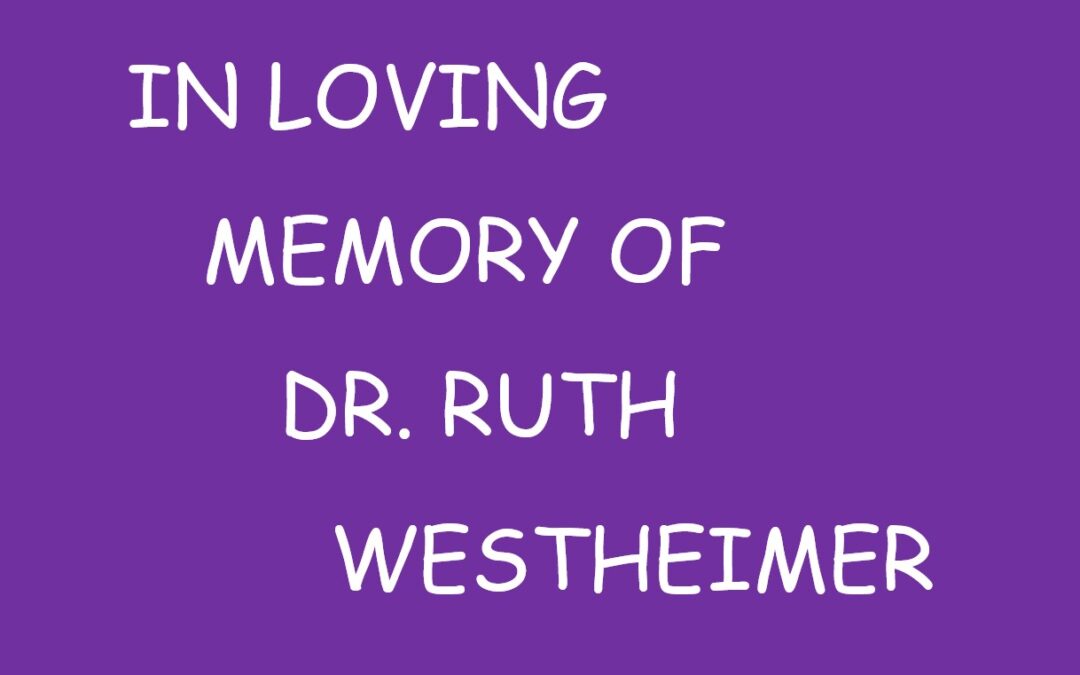
by Rev. Michael Heath | Jul 17, 2024
The news of Dr. Ruth Westheimer’s passing stunned me—not in a shocking sense. She was 96 years old; it’s just that, having been inspired and guided by her for over 40 years, it’s hard to think of her not being around.
Her death made me realize how important this woman’s work was to my professional development and personal outlook on life. Beyond my personal appreciation, I want to share some of the innovative and groundbreaking contributions she made to sex education and American culture.*
DR. RUTH IN HISTORICAL CONTEXT
It is important to acknowledge that her message was not original. She belongs to an exceptional group of educators and stands on the shoulders of other great leaders who came before her and talked to America calmly and rationally about sex.
For example, in the 40s, Alfred Kinsey conducted groundbreaking sexual research, which was continued and advanced in the 50s by Masters and Johnson. In the 60s, Helen Singer Kaplan, through her teaching and writing, provided the gold standard for sex therapy. In the 70’s, Phil and Lorna Sarrell humanized sexuality studies at Yale Medical School. Here in Syracuse in the 80s, Sol Gordon was an important voice who used humor to bring sex education out of the dark ages.
What was truly unique about Ruth Westheimer was the way she looked and talked about sex. While others dressed in white coats and spoke academically, she looked like your grandmother and cracked jokes.
Dr. Ruth dared to talk about sex like no doctor had before. In general, she taught America to lighten up about sex and stop being so serious. More importantly, she helped us to stop feeling guilty for even talking about it. Here are some areas of her profound and lasting influence.
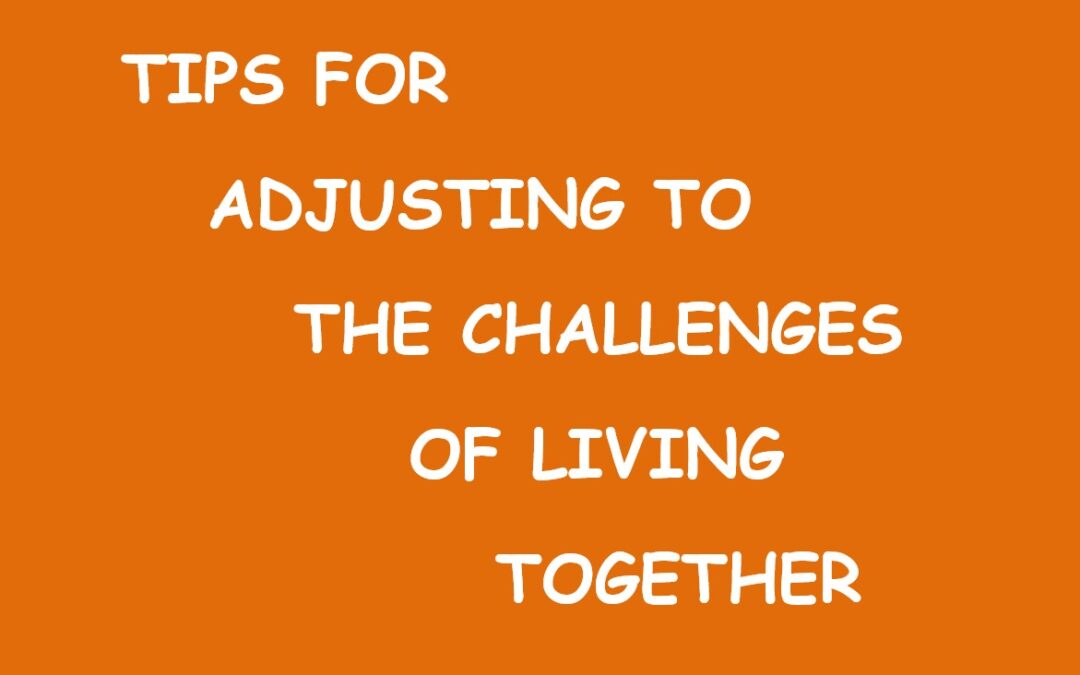
by Rev. Michael Heath | Jul 6, 2024
Recently, I’ve noticed that more couples are coming to me seeking help before moving in together. While I’ve done pre-marital counseling for many years, what is surprising is that unmarried couples who plan to live together want help too.
Some of these folks have never lived with another person and are looking for basic information about how to get along. Others complain about certain frustrating tendencies in their relationship and want help to prevent them from becoming problems.
Pre-moving-in counseling aims to provide: 1) Realistic expectations for what is involved in becoming a couple; 2) Basic communication and conflict-resolution skills. This lack of understanding is, often due to the lack of preparation provided by families or our educational system; 3) A review of the common adjustments and pitfalls couples living together for the first time face. Here are the basics:
1) REALISTIC EXPECTATIONS
Reviewing a couple’s expectations is important because those expectations are often unrealistic. Many don’t appreciate the enormity of the psychological change involved in becoming a partner.
Over the years I’ve found that couples erroneously believe that living together will be just like living apart and that the transition will be automatic and seamless. While some folks do it more easily than others, the normal adjustments require understanding, intentional negotiations and planning.
When moving in, it’s important to expect some level of anxiety. this is because any change in a routine may create uneasiness and upsets in a relationship. Sometimes couples misunderstand these kerflufies as an indication of a serious relationship problem. Most often, they aren’t.
Having realistic expectations involving the process of getting settled in a new living arrangement means understanding that change is difficult. Anticipating a stressful period of adjustment can normalize the difficult moment and prevent needless worry.
Likewise, it is important to understand that working things out does not just happen. It takes effort and patience. Unrealistic Expectations: The Importance of Recognizing and Reality-Testing Them. | Pastoral Counseling Syracuse NY (revmichaelheath.com)
2) COMMUNICATION, EXPRESSING ANGER AND CONFLICT RESOLUTION
In addition to realistic expectations, good communication skills are important to maintain good relations during a time of change as well as going forward. The decision to live together is a perfect time for a couple to learn and perfect their communication skills .
I-statements are the key to constructive communication. In addition to expressing a person’s feelings and wants, they also provide a way to express anger constructively and without attacks or name-calling.
Learning to process anger and restore a reasonable state of mind is necessary to successful conflict resolution and to negotiate win/win outcomes.
In addition to having realistic expectations and skills, here are some common potential problems. Anticipating and working on them in advance can greatly reduce the stress of learning to live together. Chores, finances, emotions: Tips for couples moving in together – Vox :
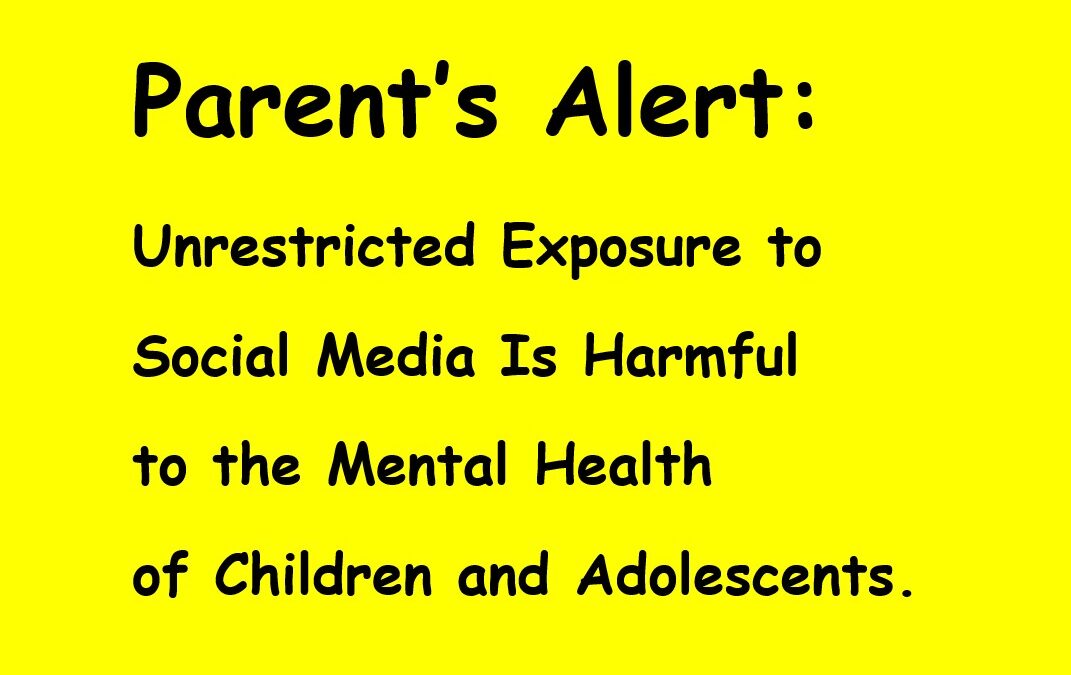
by Rev. Michael Heath | Jun 19, 2024
Recently, you may have heard that the Surgeon General of the United States urged Congress to place a black box warning label on social media. We’ve all seen them before on various prescription bottles as well as on all tobacco products.
In this case, Surgeon General Vivek Murthy told Congress that the labels are needed because compelling evidence shows that children who watch more than 5 hours of social media a day are twice as likely to experience anxiety and depression compared to those who did not.
In addition, studies reveal that kids who are heavily involved in social media like Snapchat, Instagram, YouTube and TikTok develop poor body image and self-esteem. The constant exposure to perfect bodies and amazing accomplishments posted by their peers leads kids to experience a false sense of inferiority and inadequacy. Surgeon General Issues New Advisory About Effects Social Media Use Has on Youth Mental Health | HHS.gov
Many folks have been concerned about the long-term effects of smartphones and social media on child development for years., However, the conclusions of repeated studies regarding the impact of social media on a child’s mental health are clear. SMART PHONES AND TEENS | Pastoral Counseling Syracuse NY (revmichaelheath.com)
Admittedly, smartphones and social media have become integral parts of modern life. Thinking that children can be protected from any exposure is unrealistic. That said, there are basic steps that parents can take to reduce exposure and thus minimize this risk for their children. Here are some tips to consider for your family:

by Rev. Michael Heath | Jun 3, 2024
Recent studies reveal that people are having less sex. For single folks under 40, more than half haven’t had sex in a year. This trend is also reported among married folks as well. Americans Are Having Less Sex, So Experts Say It’s Time to Shift Our Focus From...
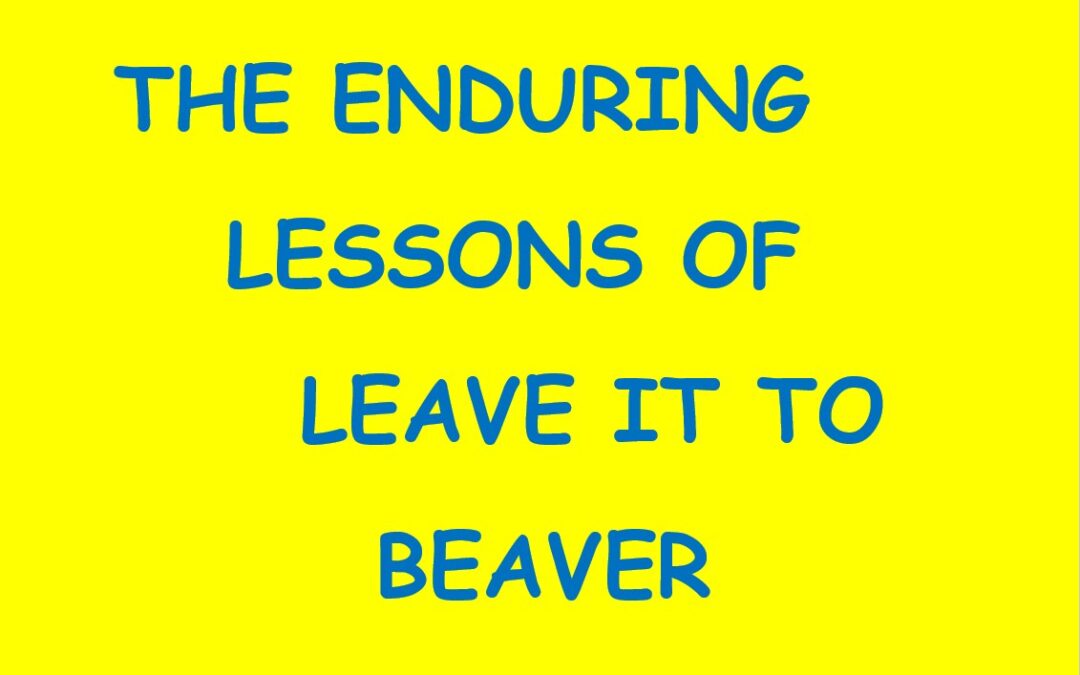
by Rev. Michael Heath | May 15, 2024
Recently, FETV began airing the original Leave It to Beaver television series and I couldn’t resist watching it. Leave it to Beaver | FETV CBS first aired the series on Friday, October 4th, 1957 at 700 pm. In 1958 it switched to ABC on Thursday night. List of Leave It to Beaver episodes – Wikipedia
LTB was my favorite TV shows when I was growing up. I suppose that was due, in part, to the fact that Jerry Mathers, (who played Theodore Cleaver, “The Beaver”) and I were the same age. I could really relate to his weekly adventures and mishaps.
The Critics
Over the years, critics panned the show for idealizing and avoiding difficult reality. It, along with other shows like Ozzie and Harriet and The Donna Reed Show, are often cited as prime examples of the sugar-coated programming of the 1950s .
Many critics have rightly noticed that everything in the Cleaver household was just too perfect. Indeed, serious problems were never explored. Each episode presented a neat and tidy moral lesson and a happy ending. To be fair, the Zeitgeist of the 50s was softer than the coarser texture of today’s culture.
One wonders how Ward and June would have faired if they were confronted with a serious medical crisis or an alcohol or infidelity problem. Likewise, we are curious how they would have dealt with things like social media or internet porn. The SG on SM & Kids | Pastoral Counseling Syracuse NY (revmichaelheath.com)
Those differences noted, rewatching the episodes surprised me. Despite its age, I believe the series offers important lessons for us today but not in the traditional way.
Praise for Leave it to Beaver has centered around its wholesome moral lessons, While true, I found LTB’s greater contribution was not so much in its moralizing but in the ways it used constructive communication and empathy skills to deal with everyday problems.
Despite the dramatic changes in culture and technology, I found the fundamental ways that the Cleavers talked to and treated one another amazing. Even though I-statement training was not around until after the series had ended, they used its insights and refrained from blaming or name-calling.
I have found the shows so helpful that I have started using LTB episodes with couples and families to show what important communication and empathy concepts look like in action. Here are some examples from an episode from 1958.

by Rev. Michael Heath | May 1, 2024
Every new major technology disrupts the cultural and social patterns into which it emerges. The radio and then television changed the evening routines of many households in America. So, it is no surprise that the smartphone impacts how we interact and relate to one another.
It is not an exaggeration to say that smartphones have revolutionized many aspects of our lives and made life more convenient. Smartphones have freed us from being tethered to a computer and have allowed us to get information anywhere or at any time.
In addition to keeping us informed, smartphones also connect us in ways unimaginable even forty years ago. Through mobile communication and social media, people stay in touch by sharing their thoughts, photos and videos,
This increased information and social interaction has created new problems for our society. Aside from the oft-reported problems of increased misinformation, poor adolescent self-esteem and overall anxiety, the addictive nature of smartphone use produces new problems for couples. Smart Phones, Social Media and our Psyche: Three things to know about the technical marvel in your pocket. | Pastoral Counseling Syracuse NY (revmichaelheath.com)
The amount of time spent on smartphones has created a serious problem for many marriages. Recent studies reveal that 70% of couples complain that their partner’s smartphone use interferes with their relationship. The term used to describe these issues is phubbing (phone/snubbing).
Phubbing is defined as the act of ignoring someone you are with and giving attention to your cell phone instead. ‘Parallel Scrolling’ In Bed With Your Partner Could Be Killing Your Relationship | HuffPost Life
Sound familiar ? Here are some questions and things to think about concerning the consequences of spending too much time on your smartphone.:
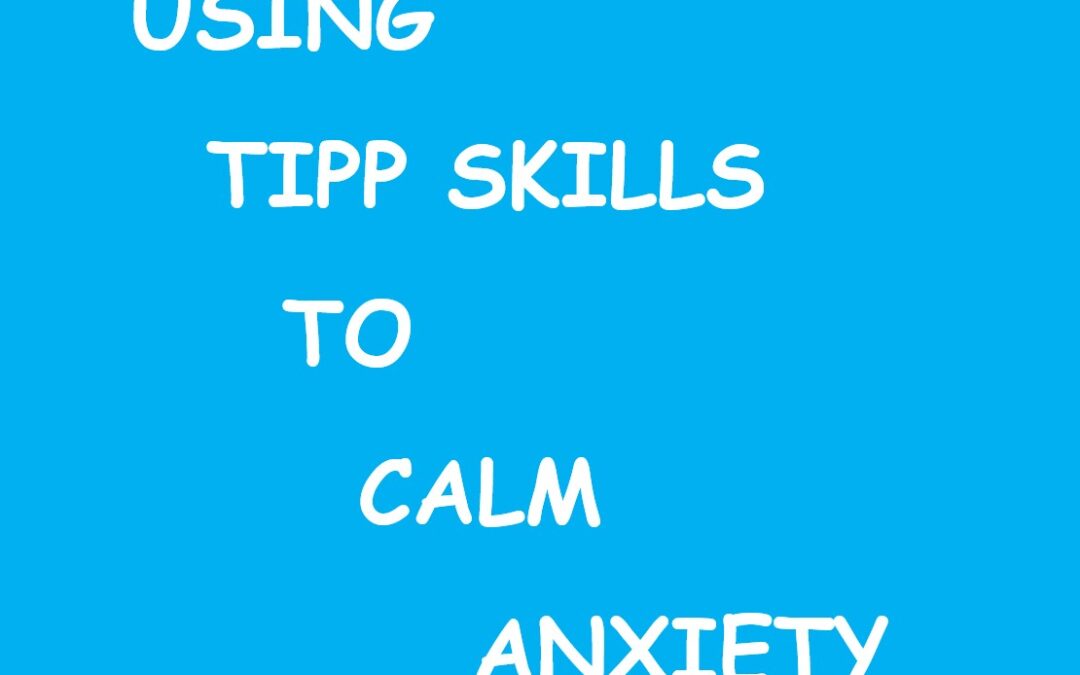
by Rev. Michael Heath | Apr 15, 2024
With the stressors of inflation, cultural polarization and wars, more and more people are feeling anxious. It seems that every day new reports are showing how anxiety levels are climbing throughout the world. The social and economic consequences of COVID-19 have...
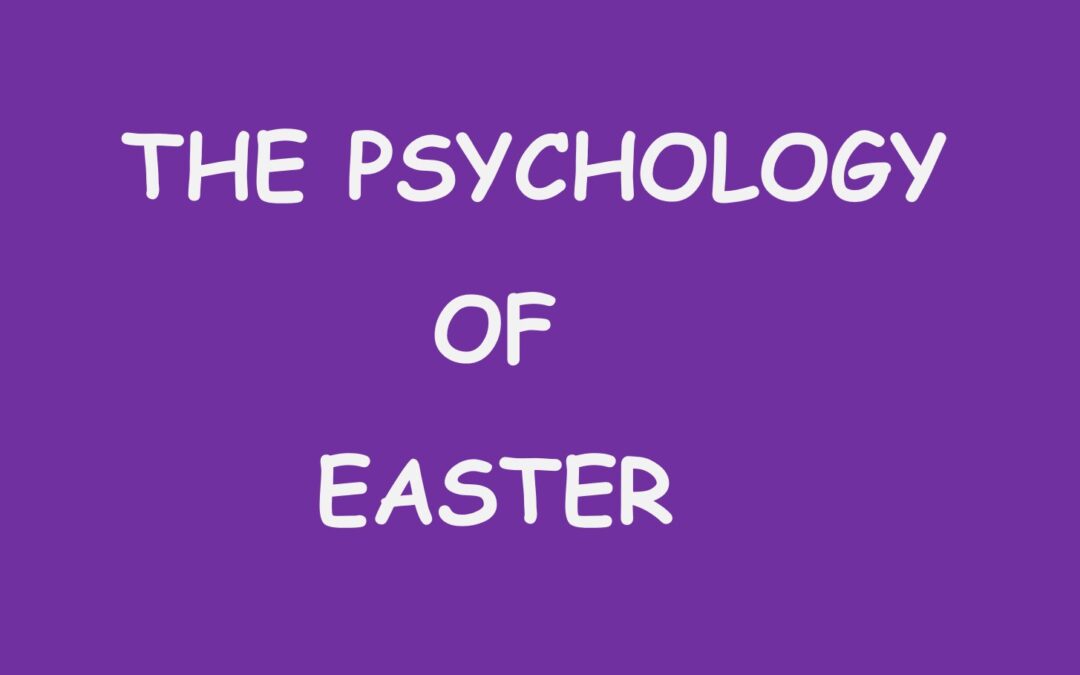
by Rev. Michael Heath | Mar 31, 2024
Happy Easter, Everyone !
Having said that, I realize that Easter means different things to different people. As a child, Easter meant Easter Baskets and brightly colored eggs. For others, it’s a celebration of Nature and the return of Spring after a long and cold winter.
For many Christians, Easter is all about the miracle of Jesus’ resurrection from the dead after dying on the cross. It’s the cornerstone of Christianity’s belief in salvation and eternal life.
For some Christians, however, a literal interpretation of the story is a stumbling block. They believe in many of the teachings of Jesus but feel that the supernatural narrative simply defies science and logic.
In addition to supernaturalism, another the emphasis that conservative Christianity places on suffering and the necessary death of Christ creqtes a problem for many. The notion that humans are inherently evil and deserving of eternal damnation unless a blood sacrifice is offered for their redemption is incomprehensible and does not fit with the belief in a loving God.
Blessings for those who find meaning in the traditional story. But for those who see it as an obstacle to their faith, I suggest that a literal understanding is not the only way the Easter story can inspire or have meaning. So I offer these thoughts today.
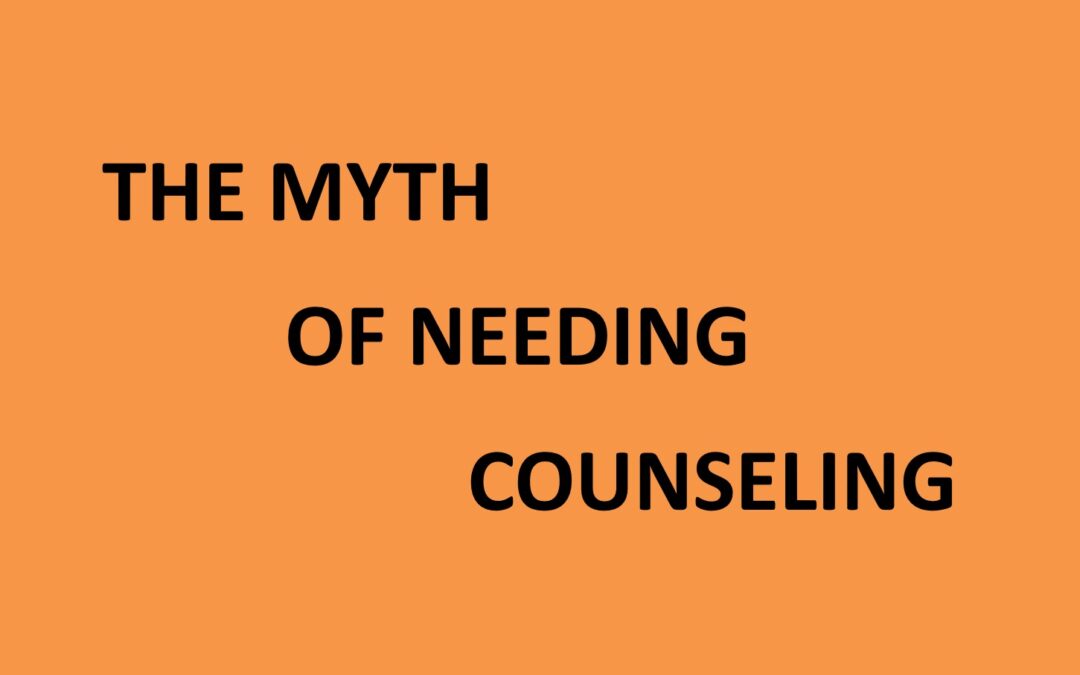
by Rev. Michael Heath | Mar 17, 2024
This week marked the fourth anniversary of switching my counseling practice from in-person to tele-therapy. This change was due to the threat posed by the COVID-19 pandemic. Beyond changing the way counseling is delivered, COVID-19 affected mental health in a variety of ways.
Multiple studies agree that COVID raised anxiety and depression levels in America and around the world. COVID-19 pandemic triggers a 25% increase in the prevalence of anxiety and depression worldwide (who. int)
Much of the mental distress came from supply shortages and emergency measures instituted to protect public health. As a consequence, these changes resulted in the loss of jobs and increased social isolation.
While working and learning remotely from home was necessary, the isolation created unexpected emotional and relational problems. Getting help to deal with these issues is further complicated by persistent myths about mental health counseling:
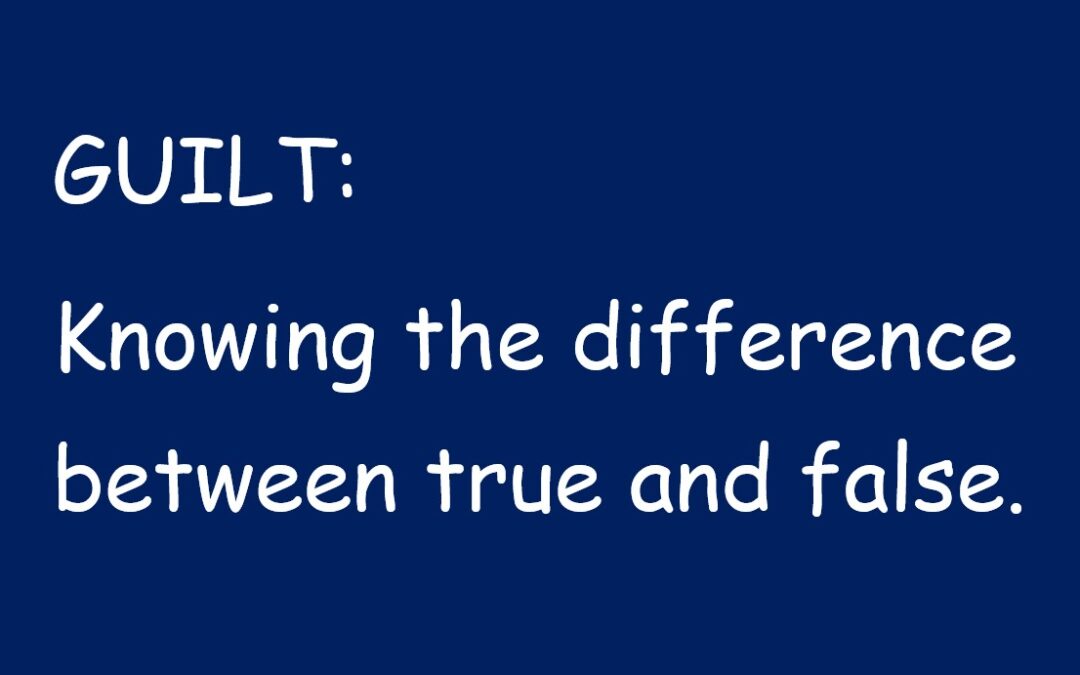
by Rev. Michael Heath | Mar 3, 2024
Over the past few years, healthcare professionals have consistently pointed to the lack of individual self-care as a serious mental health concern. Indeed, many Americans suffer from a self-care deficiency. Lack of self-care reduces our resiliency and ability to...










